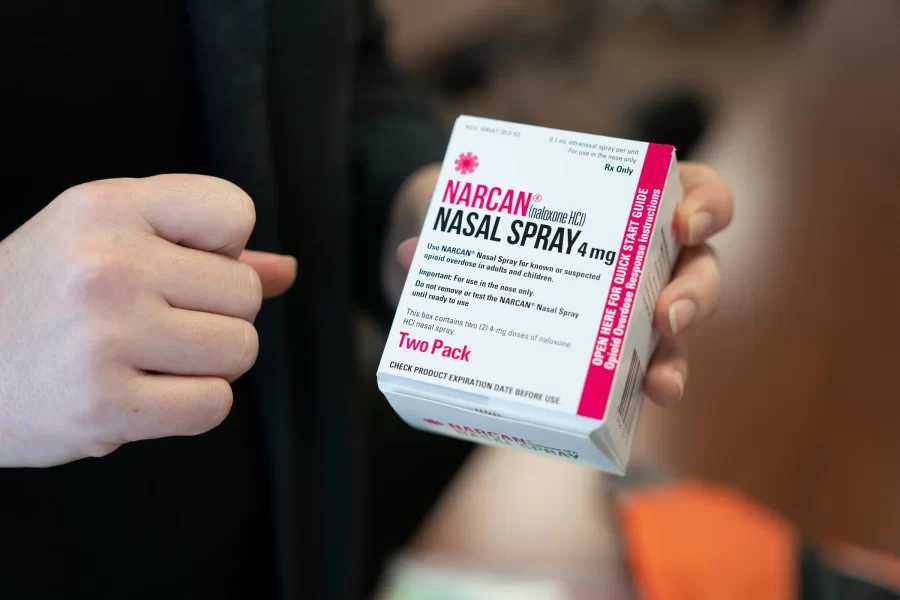American Red Cross Club offers students free Narcan training
Photo courtesy of Detroit Free Press
Narcan nasal spray.
On Nov. 10, the American Red Cross Club at Oakland University hosted a free, virtual Save a Life Narcan Training. This event was conducted to educate students about Narcan, a medication that can be used in response to opioid overdoses.
Steve Norris — the director of recovery, support and harm reduction at the Alliance of Coalitions for Healthy Communities — conducted the training. He explained the mission of the Alliance is to strengthen the community through education and prevention.
Norris began the training by educating students about the prevalence of drug overdoses. He referenced a statistic from the Centers for Disease Control and Prevention (CDC) which states over 100,000 drug overdose deaths happened in the U.S. this past year.
“Overdoses from opioids and synthetic opioids increased by thousands this past year,” Norris said.
In response to the growing opioid epidemic, Narcan has been proven to be an effective, life-saving antidote for reversing opiate overdoses. It causes immediate withdrawal when used on an individual who has an opioid present in their system.
“In an overdose, opioid receptors are overloaded, which results in the slowing and then stopping of breathing,” Norris said. “Narcan reverses the effects of an overdose by knocking opioids from the receptors for a short period of time.”
Besides the uncomfortable experience of withdrawal, Narcan does not cause any psychoactive or addictive effects. Additionally, it will have no effect on an individual if an opiate is not present.
“Narcan is routinely used by EMS in situations of opioid overdoses,” Norris said.
Training attendees were also educated on the signs of opioid use. The main symptoms were identified as pinpoint pupils, drowsiness and alarming or unusual changes in behavior.
Another portion of the training discussed the most common overdose fatalities. Individuals who experience a decrease in tolerance after a period of abstinence are most at risk for overdose.
Furthermore, individuals that use high potency or long acting opiates have a high likelihood of experiencing overdose. It was also cautioned that the use of multiple types of drugs at once is an extremely dangerous practice that should be avoided.
All student attendees at the training were given a free Nasal Narcan Save a Life Kit. Students were instructed to use the items within the kit to provide treatment in cases of opioid overdoses.
“Each kit contains two doses of Nasal Narcan, sterile gloves, a reference card, a community resource guide and a Fentanyl testing strip,” Norris said.
After teaching students about the symptoms of opioid use and the signs of overdose, the Alliance provided free Narcan materials to ensure students are prepared if they ever experience an overdose occurring.
In order to learn more about the Alliance of Coalitions for Healthy Communities, visit their website. Individuals can request Narcan materials or refills by emailing the Alliance at [email protected].
Students who are interested in participating in Narcan trainings can visit the Families Against Narcotics website, www.familiesagainstnarcotics.org









